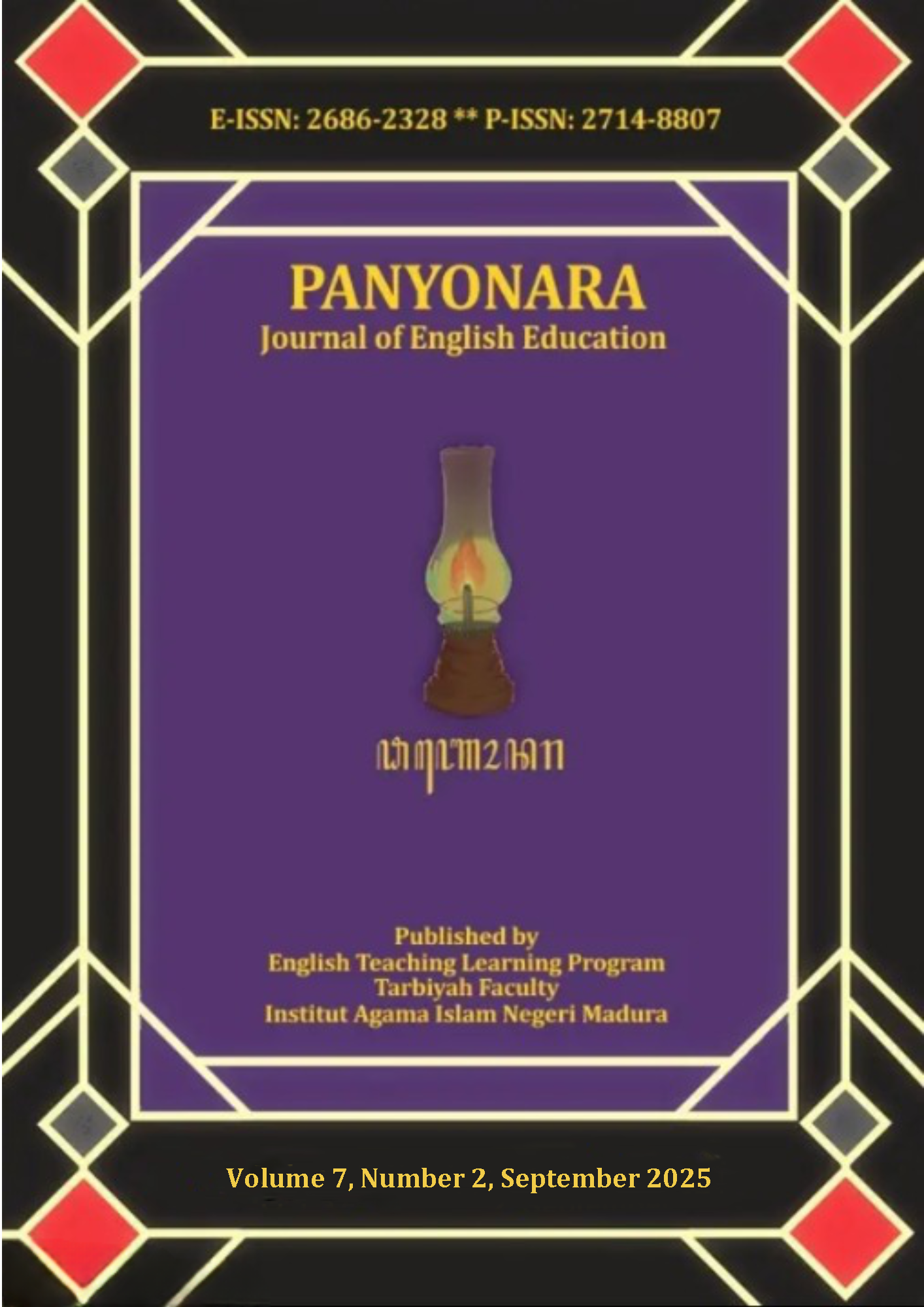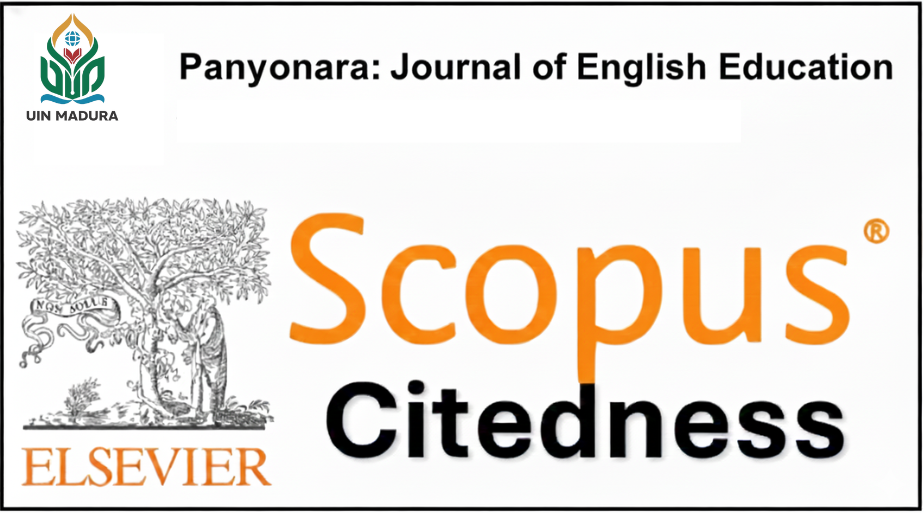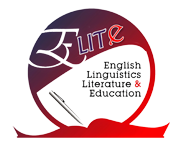Investigating English Language Students’ Difficulties in Research Article Writing
 Abstract views: 295
,
Abstract views: 295
,
 PDF downloads: 177
PDF downloads: 177
Abstract
This study investigates the difficulties faced by students in the English Language Education program when writing research articles, a mandatory requirement for degree completion. Using an explanatory sequential mixed- methods design, data were collected from questionnaires completed by 66 students and semi-structured interviews with four selected participants from universities in Malang, Indonesia. The study explored the types of writing difficulties experienced by EFL undergraduate students and identified the key factors contributing to these challenges. The findings reveal that language problems, particularly grammar, vocabulary, and sentence structure, are the most significant difficulties in research article writing. Content-related challenges, such as organizing ideas coherently and developing detailed arguments, also significantly affect students. Additionally, students struggle with understanding the structure of research articles and with citation and referencing conventions. Psychological and procedural factors, including limited supervisor feedback and poor time management, exacerbate these difficulties. These results provide valuable insights for educators to develop targeted strategies that address both technical and psychological barriers, thereby supporting students in improving their academic writing skills and succeeding in research article writing.
Downloads
References
Amrullah, A., Nirwanto, R., & Widiastuty, H. (2023). The Factors Contributing To EFL Students’ Difficulties In Paragraph Writing Course. Jurnal Bima : Pusat Publikasi Ilmu Pendidikan Bahasa Dan Sastra, 1(4), 131–142. https://doi.org/10.61132/bima.v1i4.308
Asnas, S. A. M., & Hidayanti, I. (2024). Uncovering EFL students. Journal on English as a Foreign Language, 14(1), 124–151. https://doi.org/10.23971/jefl.v14i1.7472
Cohen, J., Mccabe, E. M., & Michelli, N. M. (2019). Practice , and Teacher Education. 111(1), 180–213.
Fauzan, U., Hasanah, N., & Hadijah, S. (2022). The Undergraduate Students’ Difficulties in Writing Thesis Proposal. Indonesian Journal of EFL and Linguistics, 175–192. https://doi.org/10.21462/ijefl.v7i1.515
Hasanah, N., Noviasmy, Y., Amalia, N., & Mazhur, M. (2023). Enhancing Content Development in EFL Students’ Writing: Leveraging the Four-Square Writing Method. International Journal of Multicultural and Multireligious Understanding, 10(12), 188–196. https://doi.org/10.18415/ijmmu.v10i12.5226
Jacobs, H. L., Zinkgraf, S. A., Wormuth, D. R., Hartfiel, V. F., & Hughey, J. B. (1981). Testing ESL Composition: A Practical Approach. Newbury House.
Kankaraš, M., & Capecchi, S. (2025). Neither agree nor disagree: Use and misuse of the neutral response category in Likert-type scales. METRON, 83(1), 111–140. https://doi.org/10.1007/s40300-024-00276-5
Muamaroh, M., Mukti, V. C., & Haryanti, D. (2020). The Process and Problems of EFL Learners in English Writing. Ethical Lingua: Journal of Language Teaching and Literature, 7(2), 405–418. https://doi.org/10.30605/25409190.215
Pardede, P. (2024). Collaborative Writing in EFL Settings: A Review. JET (Journal of English Teaching), 10(1), 92–109. https://doi.org/10.33541/jet.v10i1.5631
Puspita, C. (2021). Factors Affecting Students’ Difficulties in Writing Thesis: A Mixed-Methods Research at Eighth Semester of English Study Program in IAIN Curup. English Language and Literature International Conference (ELLiC) Proceedings, 3(0), 13–22. https://jurnal.unimus.ac.id/index.php/ELLIC/article/view/4683
Riadil, I. G. (2023). Investigating EFL Learners’ Difficulties and Strategies in Academic Writing Skill: A Qualitative Study. ELP (Journal of English Language Pedagogy), 8(1), 66–76. https://doi.org/10.36665/elp.v8i1.691
Saputra, A. B. B., Jumariati, & Febriyanti, E. R. (2021). EFL Students’ Problems in Writing Argumentative Essays. Proceedings of the International Conference, 8–12. https://doi.org/10.2991/assehr.k.211021.002
Sasmita, Y. V, & Setyowati, L. (2021). Problems faced by EFL students in learning to write. Linguista: Jurnal Ilmiah Bahasa, Sastra, Dan Pembelajarannya. https://e-journal.unipma.ac.id/index.php/linguista/article/view/9404
Sugiyono. (2016). Metode Penelitian Kuantitatif, Kualitatif dan R&D. PT Alfabet.
Syafryadin, S., Shah, S. B. S. A., & Astrid, A. (2023). Higher Order Thinking Skill (HOTs): EFL Students’ Levels and Challenges in Writing Discussion Sections of Theses. Journal of Languages and Language Teaching, 11(4), 868–878. https://doi.org/10.33394/jollt.v11i4.8699
Toba, R., Noor, W. N., & Sanu, L. O. (2019). The Current Issues of Indonesian EFL Students’ Writing Skills: Ability, Problem, and Reason in Writing Comparison and Contrast Essay. Dinamika Ilmu, 19(1), 57–73. https://doi.org/10.21093/di.v19i1.1506
Wiranda, A., Dewi, U., Harahap, B. Q., & Alqawwiy, T. A. (2024). The students’ difficulties in writing research article. Journal of English Language Teaching and Learning (JELTL), 5(1), 34–47. https://jim.teknokrat.ac.id/index.php/english-language-teaching/article/download/5609/1137
The journal uses an Open Access policy under a Creative Commons Attribution-NonCommercial 4.0 International License. Authors who publish with this journal agree to the following terms:
- Authors retain copyright and grant the journal right of first publication with the work simultaneously licensed under a Creative Commons Attribution License that allows others to share the work with an acknowledgment of the work's authorship and initial publication in this journal.
- Authors are able to enter into separate, additional contractual arrangements for the non-exclusive distribution of the journal's published version of the work (e.g., post it to an institutional repository or publish it in a book), with an acknowledgment of its initial publication in this journal.
- Authors are permitted and encouraged to post their work online (e.g., in institutional repositories or on their website) prior to and during the submission process, as it can lead to productive exchanges, as well as earlier and greater citation of published work.

















